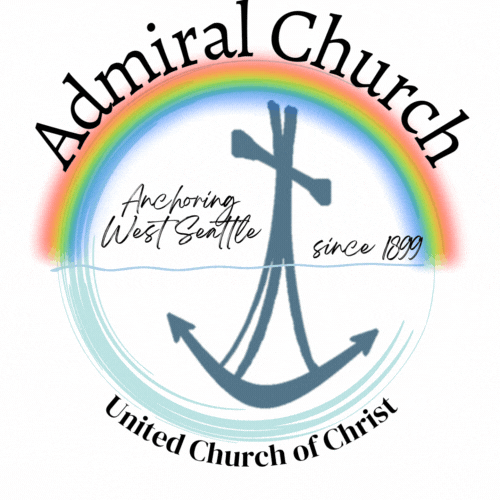THE HARD WORK OF NEIGHBORING
But wanting to justify himself, he asked Jesus, “And who is my neighbor?” -Luke 10:29
When the scholar of Biblical righteousness asks Jesus what is most important in Luke 10, he already knows the answer: love God and love your neighbor as yourself. The parable of the Good Samaritan is given as an answer to his question above. The question he asks is a salient one for us in North Admiral. We know that love of neighbor is the command, the question is to whom should that love be directed. Who does God call us to love? Perhaps a more convicting question would be, who does God call us to neighbor?
Instead of seeing neighbor as a noun, what if we looked at it as a verb, much the same way our faith invites us to reimagine the word love? No longer a state of being, it becomes an intentional action, a choice, a commitment we make which defines our relationship and posture towards another. Who do you neighbor? Who do we neighbor as a faith community? And what does it look like to actively neighbor someone? How will we know if we have done it righteously (meaning in right relationship with God and the other person)?
When we read the Good Samaritan parable, we often come to the conclusion that we are called to see everyone as our neighbor, even (and perhaps especially) the person we imagine as most unlovable and unworthy of love. This has historically
been how a big-hearted Christian has read the story, feeling called to serve the most marginalized and ostracized populations. This has propelled a great many missionary activities in far-flung corners of the globe. Yet this parable has just as
much resonance in our local communities as it does in our international service.
Returning to the question posed- Who is my neighbor? - and applying it to our own setting, we could come up with a number of answers: fellow members of Admiral Church; members of neighboring churches in West Seattle; the Pacific Northwest Conference of the United Church of Christ; people living within X blocks of our facility; the residents of District 1; the people of our city. The parable of the good Samaritan is designed to disrupt easy answers to this question. Instead, it reminds us that the decision to neighbor is most difficult (and most spiritually powerful) when it is made in the face of our own internal opposition. It is supposed to shock us with its call. To view people who repel or repulse us - whether by their attitude, politics, presentation, poverty, or affluence - as our neighbor.
Our partnership with Operation Nightwatch feels holy and sacred, a righteous use of our property and resources. AND it feels like a righteous opportunity to start neighboring our physical neighbors. We are specifically equipped and situated to serve this local community, where there are plenty of people in need of connection, encouragement, unconditional love & welcome, opportunities for service & purpose, invitations to embodiment, relief from shame and isolation, and challenges to unconscious biases and beliefs. Perhaps they will be even more difficult to neighbor than the homeless men who are shuttled to our doors each night. Are we ready and willing to start neighboring here too?
Neighboring is an act of vulnerability; neighboring is risky business. We are at a turning point in the history of progressive Christianity, and the history of Admiral Church. It is time to be bold! If this faith community has taught me anything, it has taught me how valuable and how rare an authentically welcoming space is in this world. It is only through God’s
unconditional grace, and our willingness to receive it, that true transformation occurs. All else is pretense and performance. Spaces like Admiral Church are necessary for the healing of the world. It’s time to be bold in proclamation.
In Peace and with Love, Pastor Andrew



